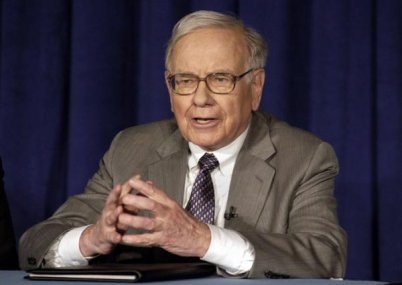Omaha, NE (NYSE: BRK.A; BRK.B)—An editorial in today’s Wall Street Journal says that “Berkshire Hathaway will enjoy an effective tax rate of 10.5% on the $300 million in dividends it will receive each year from Bank of America.” That statement is incorrect.
Virtually all of the stocks that Berkshire owns are held in its property-casualty subsidiaries, and that will be the case with the Bank of America preferred.
The tax treatment for dividends paid by U.S. corporations to property-casualty insurance companies was materially changed by a law passed in 1986. The changes were described in detail in the chairman’s letter included in Berkshire’s 1986 annual report. A minor change in rate was made in 1993. Since that time dividends that insurers receive from U.S. companies incur an effective tax rate of 14.175%. For Berkshire, that rate will apply to dividends it receives from Bank of America.
Warren Buffet injects 5 billion in Bank of America
These moves are great news for the bank’s workers and shareholders, also as for the U.S. taxpayer, which will probably be around the hook if Bank of America’s management flies the business into a mountain. But numerous analysts think that Bank of America will require to raise a great deal much more capital prior to it gets back on sound footing. These analysts think that Bank of America is nonetheless overstating the worth of a few of the assets on its balance sheet. When the business is lastly forced to understand the actual values of those assets, this theory goes, the bank will as soon as once more need to fill a significant capital hole.
Warning: Why You Shouldn’t Follow Buffett Into purchasing Bank of America’s Stock
Why would a big bank like Bank of America, which is can get money from the Fed at an interest of no more than 0.25%, pay 6% to get cash from Buffett? The first plus is that it strengthens the balance sheet, but the tangible common equity is $128 billion, so what will $5 billion do? The bank just had to settle for over $8 billion a mortgage pushback situation, which is still not resolved. Buffett’s $5 billion will be used up quickly.
On September 24th, 2008, Buffett assisted Goldman Sachs (GS) by purchasing GS preferred stock at a 10% discount along with warrants for $5 billion. The warrants can be exercised at $115. The stock was around $110 a week ago. So, the warrants are below price.
Precisely how ended up being the actual moment for that? It turned out merely twenty days into the economic crisis, that didn’t conclude right up until five months later, on March 6th, 2009.
One week afterwards, on October 1st, 2008 he invested $3 billion in General Electric (GE), which required the money because the business paper market was frozen. The GE stock had a discount of 10% interest, similar to the GS investment. He obtained warrants to acquire $3 billion of stock options at $22.50. The stock was trading at $15 one week ago. The warrants are underwater.
Lets draw some conclusions: Two big companies, which in fact had divisions or subsidiaries in the business of funding companies, were happy to shell out 10% interest to acquire funds from Buffett. Wasn’t that a reasonable forewarning for the crisis? The warrants have become basically worthless. Therefore, it appears like Mr. Buffett has made a great interest rate, however otherwise absolutely no gain on the investments. Additionally, he still had to go through the deepening financial crisis in 2008-2009 that presented us to “within 10 minutes of shutting down the entire banking system,” according to Senator Chris Dodd.
Berkshire Hathaway business activities
Berkshire Hathaway and its subsidiaries engage in diverse business activities including property and casualty insurance and reinsurance, utilities and energy, freight rail transportation, finance, manufacturing, retailing and services. Common stock of the company is listed on the New York Stock Exchange, trading symbols BRK.A and BRK.B.

